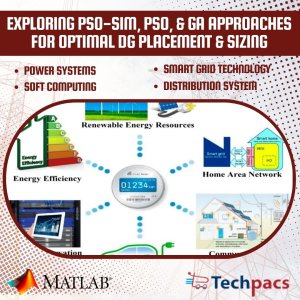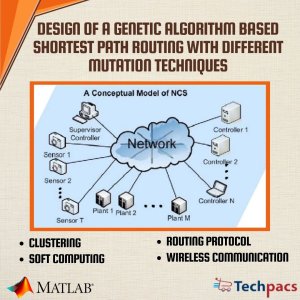A Hybrid Firefly Algorithm-ANFIS Controller Enhanced with PID for Networked Controlled Systems
Problem Definition
The use of the ANFIS-PID controller with the GWO algorithm has shown promising results in reducing transmission delays and packet drops with improved accuracy compared to conventional methods. While the GWO algorithm offers ease of operation and simplicity with few parameters, there are limitations to its precision, convergence speed, and local searching capabilities. These drawbacks can hinder system performance and result in inefficiencies. In order to enhance the accuracy and efficiency of the system, there is a need to address these limitations and further upgrade the existing approach. By exploring hybridization techniques, it is possible to overcome the drawbacks of the GWO algorithm and develop a more precise and efficient system.
Through this enhancement, a more effective solution can be achieved that surpasses the current performance levels and delivers superior results in reducing transmission delays and packet drops.
Objective
The objective of the proposed work is to enhance the accuracy and efficiency of Networked Control Systems (NCS) by optimizing the ANFIS-PID controller using a hybrid approach of the Grey Wolf Optimization (GWO) algorithm with the Firefly Algorithm (FA). This hybridization aims to overcome the limitations of GWO and achieve better results in reducing transmission delays and packet drops in NCS applications. By integrating FA into the system, the objective is to elevate performance levels beyond what was achieved with GWO alone, leveraging the unique capabilities of both algorithms to maximize accuracy and efficiency. Ultimately, the goal is to create a more effective control system that sets a new standard for optimization in the field of NCS.
Proposed Work
In the proposed work, the main aim is to enhance the accuracy and efficiency of the NCS system by upgrading the previous approach of using ANFIS-PID controller with the GWO algorithm. By implementing the hybridization of GWO with the firefly algorithm (FA), it is expected to overcome the drawbacks of GWO and achieve better results. This hybrid approach is chosen based on the literature survey that highlights the advantages of using hybrid algorithms to optimize system performance. By combining the strengths of both GWO and FA, it is anticipated that the proposed system will provide more accurate and efficient results for NCS applications. The rationale behind choosing this specific technique lies in the potential to capitalize on the benefits of each algorithm while mitigating the limitations of GWO, ultimately leading to a more effective control system.
Furthermore, the objective of the proposed work is to optimize the performance of the ANFIS-PID controller using the FA optimization algorithm. This objective is driven by the need to further improve the system accuracy and efficiency beyond what was achieved with the GWO algorithm. By integrating FA into the hybrid approach, it is expected to elevate the system performance to a higher level by leveraging the unique capabilities of both algorithms. The rationale for this objective is grounded in the desire to maximize the system's potential for accuracy and efficiency by incorporating the strengths of FA alongside GWO. Through this proposed work, it is anticipated that a novel and more efficient approach to NCS systems will be realized, setting a new standard for control system optimization in the field.
Application Area for Industry
The project's proposed solutions can be applied in various industrial sectors where system performance optimization is crucial. This includes sectors such as manufacturing, healthcare, transportation, energy, and telecommunications, among others. The challenges that industries face in terms of system delays, inefficiencies, and inaccuracies can be effectively addressed by implementing the upgraded approach of hybridizing the GWO algorithm with the firefly algorithm (FA). By overcoming the drawbacks of GWO through hybridization, industries can achieve more precise and efficient systems, leading to improved performance, reduced delays, and fewer errors. The benefits of implementing these solutions in different industrial domains include increased productivity, cost savings, enhanced reliability, and improved customer satisfaction.
Application Area for Academics
The proposed project can significantly enrich academic research, education, and training in the field of control systems and optimization. By exploring the concept of hybridization of the GWO algorithm with the firefly algorithm, researchers, MTech students, and PHD scholars can enhance their understanding of optimization techniques and their application in real-world scenarios such as reducing transmission delays and packet drops in Networked Control Systems (NCS).
The relevance of this project lies in its potential to improve the accuracy and efficiency of control systems through the use of hybrid algorithms. By combining the strengths of both the GWO and firefly algorithms, the proposed work aims to overcome the drawbacks of the previous approach and achieve a more precise and efficient system performance.
Researchers in the field of control systems and optimization can utilize the code and literature from this project to explore innovative research methods, simulations, and data analysis techniques.
The implementation of the hybrid FA-ANFIS system, along with PID and Fuzzy systems, can offer new insights into optimizing control systems and improving overall system performance.
This project opens up opportunities for further research in the development of hybrid optimization algorithms and their applications in various domains. The future scope includes conducting comparative studies, analyzing the performance of the hybrid system in different scenarios, and exploring the potential for further optimization techniques.
The proposed work not only contributes to academic research but also provides a platform for students and scholars to delve deeper into the field of control systems, optimization algorithms, and their practical applications. Ultimately, this project has the potential to advance research methods, enhance educational resources, and facilitate training in innovative technologies within educational settings.
Algorithms Used
The algorithms used in the project include Hybrid FA-ANFIS, PID, and Fuzzy system. The Hybrid FA-ANFIS algorithm is proposed to optimize the ANFIS controller in order to address the issues of Networked Control Systems (NCS) and improve system accuracy and efficiency. This algorithm combines the benefits of both the Firefly Algorithm (FA) and Grey Wolf Optimization (GWO) to enhance system performance. By hybridizing these two algorithms, the system can achieve more precise and efficient results compared to using GWO alone. The PID algorithm is also utilized in the project to provide control in the system, while the Fuzzy system is used for decision-making and rule-based operations.
By employing these algorithms in conjunction with each other, the project aims to improve the overall accuracy and efficiency of the system.
Keywords
SEO-optimized keywords: ANFIS-PID controller, GWO algorithm, transmission delays, packet drops, optimization, accuracy, comparison analysis, improved results, efficient system, hybridization, NCS, upgrade, precise system, efficient system performance, drawbacks, hybridization of algorithms, system enhancement, network impacts, control systems, distributed environments, network latency, network delays, network reliability, performance optimization, networked control architecture, communication protocols, real-time systems, feedback control, network congestion, network synchronization, control system design.
SEO Tags
ANFIS-PID controller, GWO algorithm, optimization, accuracy improvement, transmission delays reduction, packet drops reduction, comparison analysis, PID controller, Fuzzy-PID controller, hybridization, system upgrade, efficient system, precise system, GWO drawbacks, hybridization benefits, firefly algorithm (FA), networked control systems, network latency, network delays, system performance, control system design, real-time systems, communication protocols, feedback control, network synchronization, control system design.
| Shipping Cost |
|
No reviews found!

















































No comments found for this product. Be the first to comment!